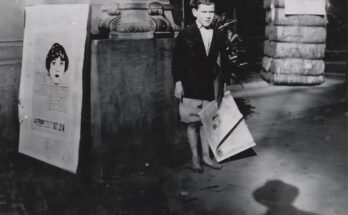Margarete Horwitz was born on 26 May 1885 in Berlin, Germany. She came into the world at a time of significant change in Europe, during the final decades of the 19th century. As a Jewish woman growing up in the German capital, Margarete would have witnessed both the rich cultural life of Berlin and the undercurrents of social and political tensions that were beginning to stir across the continent. The Jewish community in Germany during her early years was diverse and vibrant, contributing to the arts, sciences, and economic growth of the country. Margarete was part of this cultural fabric, raised with the traditions of her heritage and the customs of her city.
Details of her early life remain scarce, but like many Jewish families in Germany, Margarete likely lived a life that balanced both integration into German society and preservation of her Jewish identity. As she grew into adulthood, she would have experienced the turmoil of World War I, the subsequent collapse of the German Empire, and the tumultuous years of the Weimar Republic. Throughout these decades, Jewish life in Germany remained complex—both enriched by cultural achievements and shadowed by rising antisemitism. It was a time of both opportunity and growing unease for Jews in Europe.
At some point in her life, Margarete moved to Amsterdam in the Netherlands. Whether she left Berlin before or after the Nazis came to power in 1933 is unclear, but Amsterdam became home for many German Jews who sought refuge from Hitler’s increasingly oppressive regime. Amsterdam offered relative safety during the early years of Nazi rule in Germany, and for a time, it was a place where Margarete could live in peace. Like many refugees, she might have hoped that the threat from Germany would eventually subside, allowing her to return or continue her life without fear.
Unfortunately, the Nazi invasion of the Netherlands in May 1940 shattered that fragile sense of security. Under occupation, the Dutch Jewish community, including refugees like Margarete, were subjected to a series of ever-tightening restrictions. The Nazis introduced anti-Jewish laws, forced Jews to register, and began systematic deportations. Life in Amsterdam for Jews became increasingly perilous as the machinery of persecution took hold. Margarete, now an older woman, would have experienced these changes with dread and uncertainty.
In February 1943, Margarete was arrested and deported by the Nazis. She was among the tens of thousands of Jews sent to concentration and extermination camps in the East. That month, thousands of Jews from the Netherlands were transported to Auschwitz, the most infamous of the Nazi death camps. The journey from Amsterdam to Auschwitz was brutal, with people crammed into cattle cars under horrific conditions. Margarete, then 57 years old, was part of this tragic exodus.
Upon arrival at Auschwitz, the vast majority of deportees were not registered as prisoners but were sent directly to the gas chambers. This was the fate that awaited Margarete Horwitz. Like so many others, she was murdered shortly after arriving, part of the Nazi regime’s systematic extermination of Europe’s Jewish population. Her life was taken in a gas chamber—an industrial method of mass murder employed by the Nazis to carry out the Holocaust.
Margarete’s story is one among millions, yet it is important to remember her as an individual. She was not just a statistic or a name on a list, but a woman who had lived a full life—who had seen empires fall, cities transform, and societies crumble. Her journey from Berlin to Amsterdam, and ultimately to Auschwitz, reflects the path of many German Jews during the Holocaust: a desperate flight from persecution that tragically ended in genocide.
Today, we remember Margarete Horwitz not only as a victim of the Holocaust, but as a human being whose life had meaning and whose memory must be preserved. Her story reminds us of the horrors of unchecked hatred and the devastating consequences of indifference. It is through the remembrance of individuals like Margarete that we honor the past and commit ourselves to a future where such atrocities never happen again.


